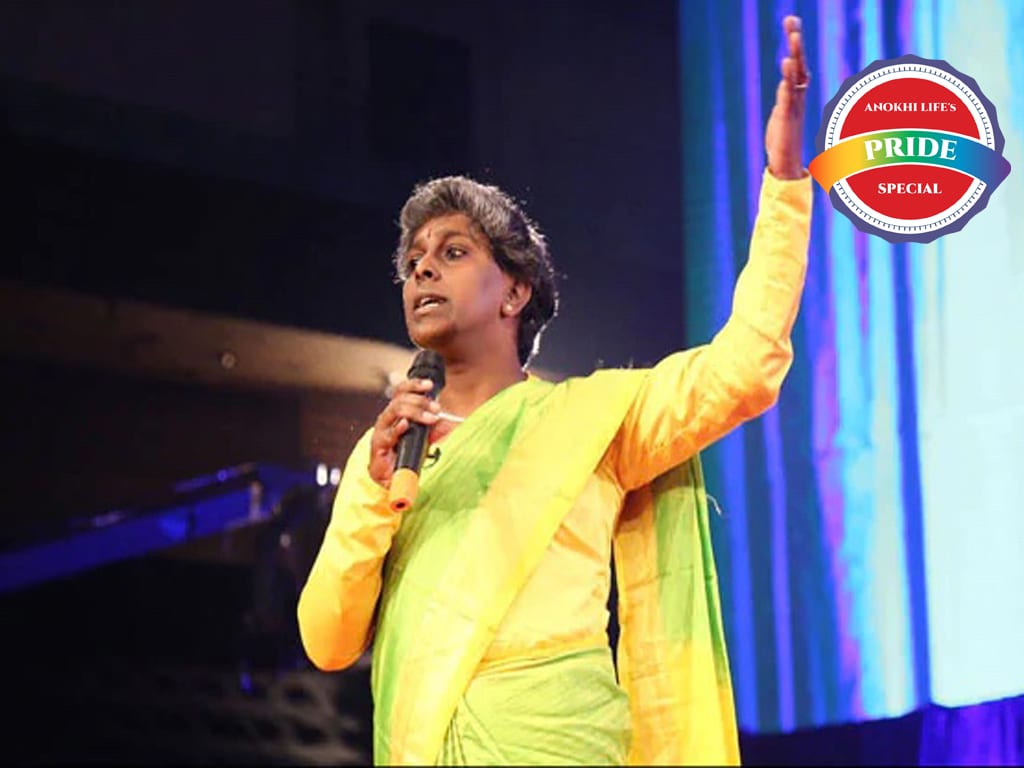
Transgender Activist Akkai Padmashali On Bringing Dignity & Equality To The Trans Community Of India
Lifestyle Jun 02, 2020
We kick off Pride Month with our conversation with Akkai Padmashali, a transgender activist and motivational speaker and a a political powerhouse based out of Bangalore, India. She shared her thoughts on the importance of implementation of human rights, the changing of the Indian mindset and being a new mom.
The recipient of the Rajyotsava Prashasti, the second-highest civilian honour of the state of Karnataka, Akkai Padmashali also holds also an honorary doctorate from the Indian Virtual University for Peace and Education. She continued In October 2014, she was the lone transgender representative from India to address the International Bar Association’s conference in Tokyo, Japan.
She along with other young leaders of India were invited to attend a Town Hall with Barak Obama organized by the Obama Foundation in 2017. When called upon, she asked him this question: “When the state terror is against minorities — be it transgender, sexual minority, caste, class, creed, religious — when you have been stigmatized, when you’ve been discriminated and patriarchal power and domination is against you — I am a criminal before Section 377 which criminalizes transgender, lesbian, gay, bisexual — how do I then raise my voice?” A question that left the former President of the United States somewhat at a loss for words because he admitted that he wasn’t familiar with the Indian political dynamics with respect to trans rights. However, he didn’t diffuse her light and emphasized the importance on finding that voice.
She has continued to use her voice to address trans rights in India by through various keynote addresses. “I was born a male and changed into a woman. We are not criminals, anti-social elements — we are here to seek opportunities,” she explained at 2018 Ted Talk. In February of last year, she spoke at another Ted Talk series, this time in Jaipur where she focused on Article 377 of the Indian Penal Code which decriminalizes homosexuality.
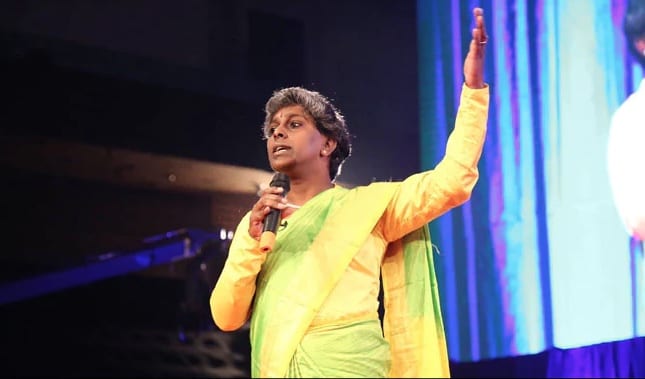
All of this is in keeping with her ongoing mission: to amplify the issue of equal rights for the transgender community especially with regard to the Rights of Transgender Persons Bill. While the bill was passed by Rajya Sabha (India’s upper house) in April of 2015 it has not yet been discussed at Lok Sabha (India’s lower house in their bicameral Parliament). “I urge our parliamentarians to support and ensure passage of the earliest for the welfare of the community,” she said to Hindustan Times.
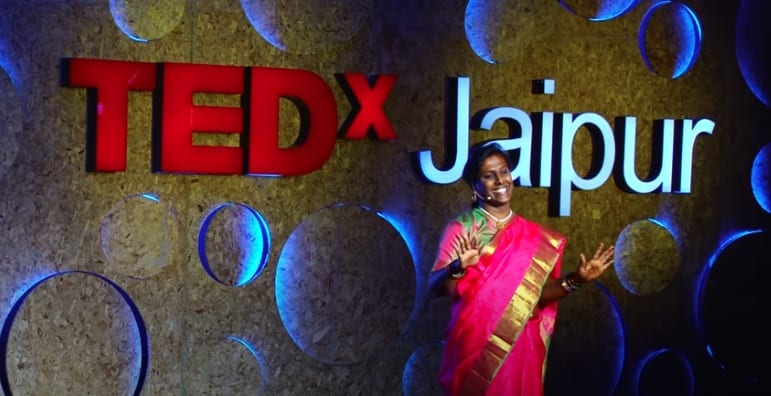
Akkai’s journey hasn’t been easy. Born a boy in Bangalore, she grew up in a middle-class family with her father working in the airforce and her mother a homemaker. She had a challenging childhood filled with confusion and feelings of loneliness primarily because she was still figuring out why she liked her mother’s sarees and bindis more than her own clothes. She has often spoken at interviews about how felt like a girl stuck inside a boy’s body.
When she shared how she felt with her mother, her mother refused to understand. When her father found out, he put her on a three-month house arrest and even poured hot water on her to “get her into her senses.” Akkai tried to kill herself at the age of 12. Twice. Her parents refused to acknowledge her pain and even took her to doctors for “treatment”. When se was around 15, she told her brother that she was a girl and he laughed. Her relatives and family members teased her and called her chakka (a term of offence which is akin to “lady boy”).

As a teenager, her body and mind were not in sync and she began to face several insensitive and indecent questions from her peers. She failed out of school by the 10th grade and decided to enroll in a three-year vocational and technical training course. However, she quit that in six months due to a traumatic event. “Some of them wanted to know what sex I belonged to, others [wanted to know] about my private parts. She told the Hindustan Times, “Then one day four of my classmates (at the technical institute) took me to a toilet, where they put their hands into my private parts and then raped me … they sprayed semen all over me.”
That’s when she decided to work. She took up a job at Ram Ceramics in Bangalore but people had the same attitude towards her trans status. “People only wanted sex from me so I decided to become a sex worker,” she noted in an interview with Lakshmi Rebecca, She spent four years in the sex trade and lied to her parents about her being an office assistant at a private company. The money she earned from sex work was often given to her parents.
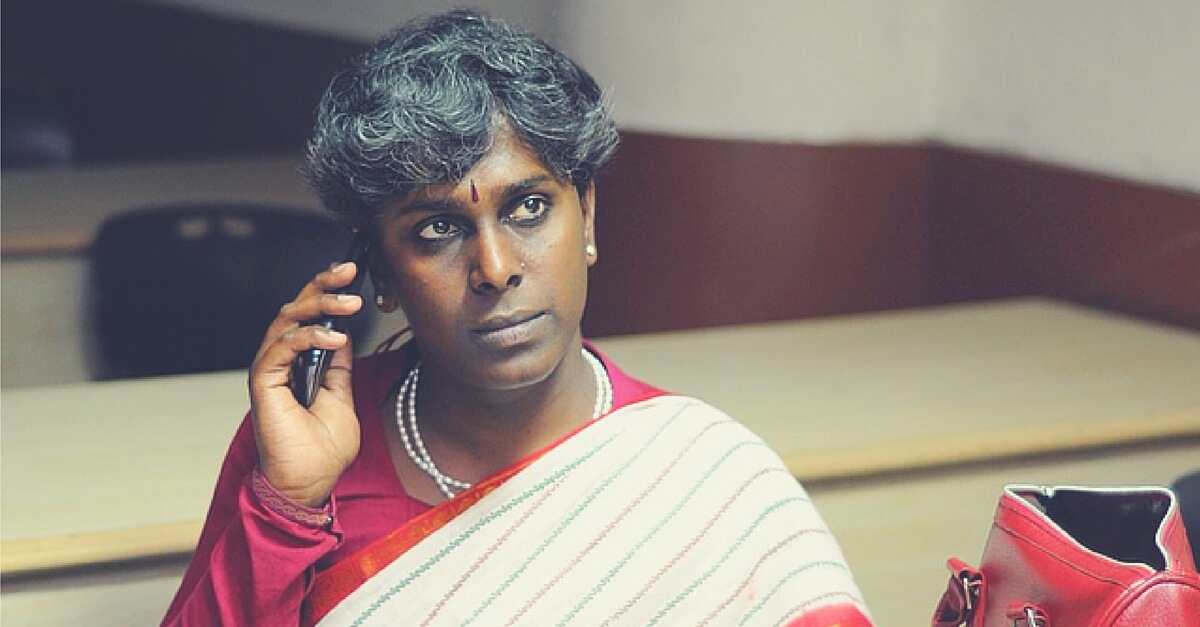
Akkai turned to activism and joined Sangama, a local NGO that works with sexual minorities. Life has never been the same for Akkai since then. Especially after the Supreme Court of India acknowledged transgender as a third gender in all forms and legal documents in 2014. She is the first transgender in India to get a driver’s license. She founded Ondede (“convergence” in Kannada), an organization that aims to create awareness about sexuality, diversity, and sexual orientation. She currently is the trustee and director at the organization and is actively involved in activism.
During a brief chat, Akkai shared with me her candid thoughts on the state of trans rights today.
Mrinalini Sundar: Do you think things have changed after the 2014 decriminalization of Article 377?
Akkai Padmashali: 23 years ago, [she struggled for 23 years to make an identity for herself in the society], the fight for identity and violence was different. There wasn’t enough information and awareness as well. But today there is a drastic shift in the level of information that is available and social media dominance has changed everything. The situation is very different these days thanks to the media. But what I have never understood is why we need to “come out”, or sexually orient ourselves? Does a guy “come out” and say “I am a man” or does a woman “come out”. I think there needs to be a social and moral responsibility for everyone to accept who we are. The government should focus on educating the transgender community. The Supreme Court verdict boosted our confidence and supported the minority community.
MS: What are some of the basic transgender rights that are still missing from India?
AP: It took so many decades for the Supreme Court to pass the judgment itself. I feel because of the long struggle — our constitutional rights have still not been implemented. Be it in the form of housing, employment, or just dignity. I think we have to mature as a society. It is not enough if we just pass verdicts, we need to implement them as well. Even though the verdict brought about positive changes, it hasn’t changed the mindset of the society to a great extent.

MS: Do you find the Indian government is properly addressing the issues of your community?
AP: First and foremost, the government needs to focus on educating the transgender community. We are fighting a larger battle of stigma and discrimination. The government needs to talk about gender equality, identifying the sexual minorities, and implementing the 2014 verdict. But besides the government, the mindset of the common public also needs to change. I believe that race, sexuality, and poverty are all interlinked. We need to get rid of that. The world is one and human beings are one — that is the only way to exchange solidarity and support.
MS: How did you deal with sexual violence and what advice would you give to others who are suffering it now?
AP: Anyone who is going through violence should first stop playing the victim card. They need to overcome violence and fight for themselves. Violence needs to be addressed from the grassroots levels and together as a community, we can bring more awareness. I also think that the vulnerable community needs to be recognized. People should be part of the human rights council or forums that address these issues. There is resistance and refusal to accept things in the current system and that needs to change.
MS: What do you expect the next big change for the transgender community in India would be?
AP: I know a lot of people won’t agree with me but I believe that sex work needs to be legalized. I know what it feels to be a transwoman indulging in sex work. That is the only way sex trafficking will [be] reduced. Meeting leaders across the globe has been inspiring and enriching. But unless and until issues are not addressed from the grassroots level — it is very difficult. Leaders need to speak about our issues. I get judged even today for my voice or gestures — leaders need to address problems that we face on a day to day basis.
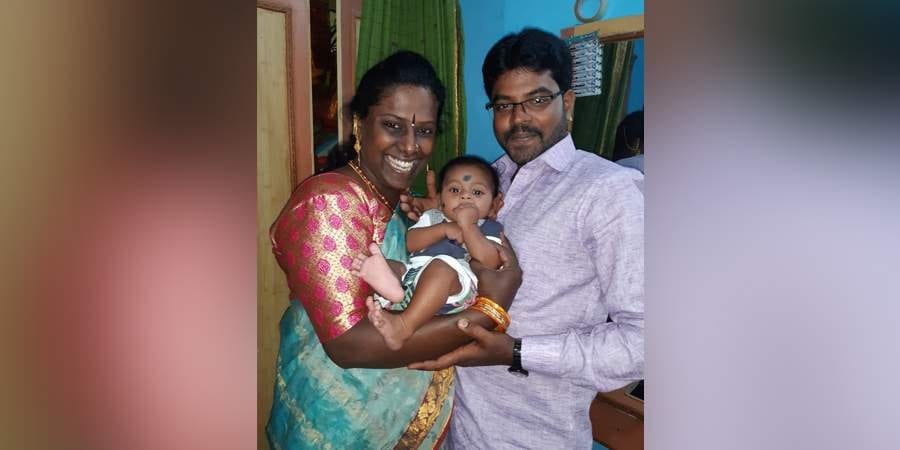
MS: What are your aspirations for your baby?
AP: My mother always wanted me to settle down. Then I met Vasu and we got married. We decided to grow as a family and we spoke to our families about adoption and met resistance. But we didn’t heed to that and decided to adopt. I, in fact, wanted a transexual baby or a baby girl but we were allotted a boy and I am very happy. I don’t care about my baby’s sex — I don’t want to judge or decide my child’s sex. Let him decide what he is. When someone asks me how is your boy — I tell them it is not a boy or a girl. He is a child and we need to stop judging him so early.
Main Image Photo Credit: www.thebetterindia.com
Mrinalini Sundar
Author
Mrinalini Sundar (new_girl_in_to) has worked with various Indian national, international publications including Times Of India and is currently based out of Toronto. She's constantly in search of high adventure, exotic food, and new experiences. She is the happiest amidst mountains, with no wi-fi.













































































































